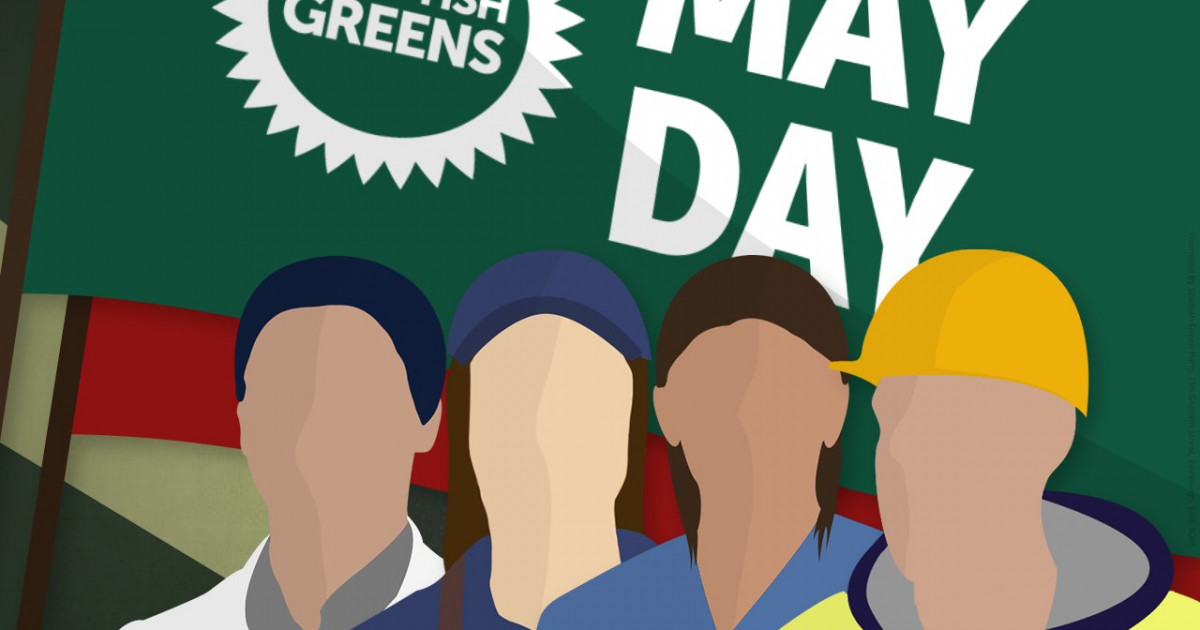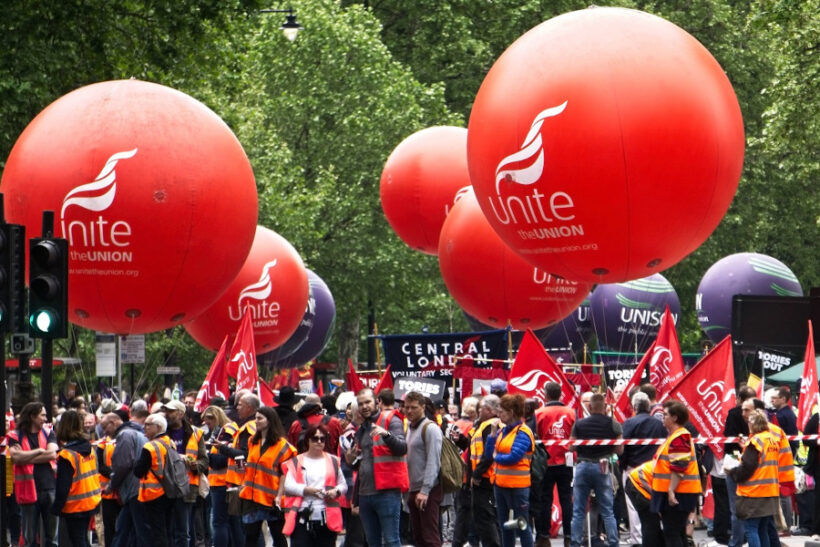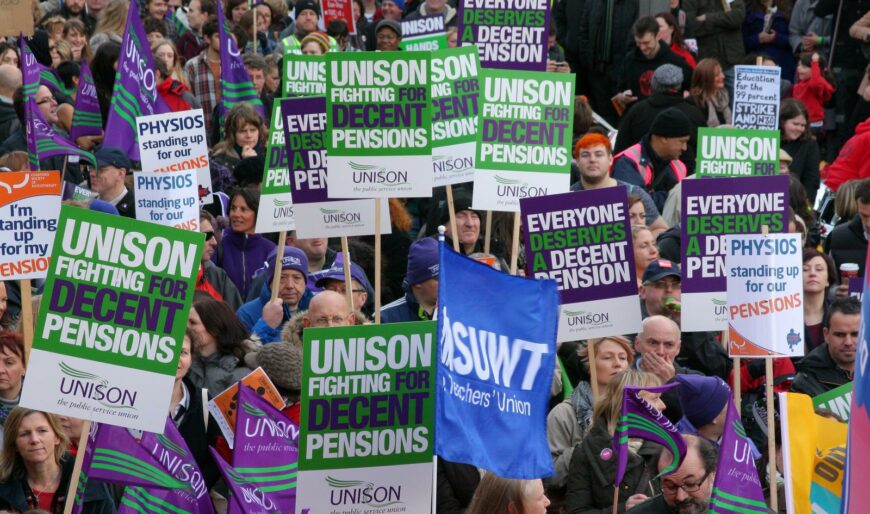May Day: A day for workers
Scottish Green MSP Maggie Chapman hosted a Members Debate on Celebrating Workers and Trade Unions.
In her opening speech Ms Chapman called for the normalisation of a four day work week and a real living wage, and the devolution of employment law to the Scottish Parliament.

Today is May Day. A day for both workers and Beltane. I sometimes wonder if deep in the mists of time these two days are linked.
Beltane and other May Day traditions marking the beginning of summer often involved rituals where an ordinary person was chosen to be a “Lord of Misrule”: someone to take the place of the Lord or master, to govern in their place.
Beltane traditions were, of course, an important element of pre-modern cultures, where power couldn’t be wielded in the universal way the modern state seeks to. Almost no pre-modern culture revered those in power and left them there all the time. Often those in power were figures of fun. And not, of course, in the way a leader who lasts less long than a lettuce is a figure of fun. But structurally figures of fun.
May Day has its origins in the Haymarket Massacre in Chicago, a massacre that came as part of a campaign for the 8-hour working day. And the campaign for the 8-hour working day has its modern equivalent in the campaign for a four day week.
Just as the wealthy who lived off the work done by others argued that 19th century workers should be forced into 12-16 hour days, so the wealthy today who live off the work done by others suggest that a 4 day week would be a catastrophe.
Of course we know that neither is true. Fair working hours 100 years ago were good for everyone. Fair working weeks now are, similarly, good for everyone.
So what is the link between May Day and Beltane?
The action for the campaign for an 8-hour day began with a strike of industrial workers across the United States. They chose the 1st of May as the start date for their strike. I think we can assume it is for a reason.
We are talking about an era where there is very little written evidence of what happened with working class people. Much less where those people exercised their power. Workers did not get to shape the narrative of the history we assume as fact.
So what I think might have happened was that many of the “Lords of Misrule” chosen to govern for a day turned out to be better rulers than the authorities of the day. They turned the world upside down. They enjoyed more popularity. They reversed unfair decisions. They highlighted the often self-interested nature of power. I think it is safe to assume that this probably ended pretty badly for them when the “normal” order of things resumed.
And we see parallels today. Structures of power, elites with vested interests in the status quo, use their power and influence to keep progressive change from rising.
That is why we see public bodies still failing to pay the living wage to workers. Too many employers still refuse to pay their workers the real living wage, including, to my dismay, companies owned by the Scottish Government and contractors providing public services.
That is why we see too many workers still not receiving the real living wage, including workers contracted to provide public services.
We have the shocking situation that maternity leave is unequal across sectors, and shamefully, within the public sector.
We have Fair pay disputes across Moray, Fife, Dundee, West Dunbartonshire, Renfrewshire and Falkirk councils. There continue to be job evaluation issues in Glasgow and discriminatory practices used by contracting companies that deliver council services.
And very directly, we have the continued refusal by the UK government and opposition to devolve employment law. If we had these powers, we might be able to go some way to creating a good example.
As we face the problems of the future we need to find ways to work together to deliver a better world.
Central to that work must be our engagement with workers and their Trade Unions. Many of us in this chamber are long-term trade unionists, and I refer members to my register of interests – I am a member of Unite the Union.
Over the last couple of weeks, there has been a Festival of Trade Unionism in Dundee. The Speak Oot festival events – while maybe not quite the appointment of a Lord of Misrule – have seen workers, activists, community organisers, campaigners and politicians from across the city and beyond, and from across many political parties, come together to debate, learn, share, celebrate and show solidarity with each other. I really enjoyed attending several events and pay tribute to the organising group for such a great festival.
Over the last couple of years, I have been privileged to work closely with the Fire Brigades Union and their DECON campaign. It is only right that some of the bravest of public servants are treated properly, given the support, facilities and training they need to keep themselves safe, to clean carcinogenic toxins off their bodies, clothes and equipment, while they work to save our lives and our communities.
I would like to put on record, again, my support for the women in the FBU that are fighting for 52 – for improved maternity pay within the SFRS, to bring the service in line with several services across the rest of the UK. And I look forward to marking, with the FBU and others, International Firefighers’ Day this coming Saturday.
Trade Unions, as we heard yesterday in Bill Kidd’s members debate recognising the 50th anniversary of the Health and Safety etc. at work Act, have played a pivotal role in improving the conditions in which their members work.
I know we will hear about some specific campaigns in the course of this debate, but I want to highlight one last campaign – that of Unite the Union’s Fair Hospitality campaign – Get Me Home Safe. Employers have a responsibility to ensure their workers – those responsible for the functioning and success of their services or businesses – are safe as they make their way home after work.
I am proud of the record of Scottish Greens in delivering positive change for workers across Scotland – through our work with the Scottish Government over the last couple of years particularly on Fair Work.
But we have so much more to do. We need to challenge the wealthy and elites to deliver a fair and just world. We need to turn the world upside down.
I will end with a short extract from folk song “the World Turned Upside Down”:
You Poor take courage you rich take care
This Earth was made a common treasury for everyone to share
All things in common, all people one
We come in peace


